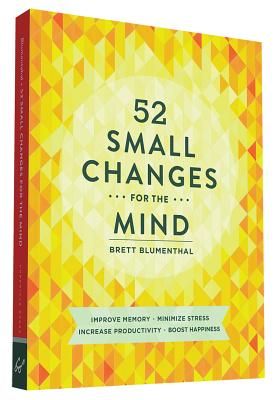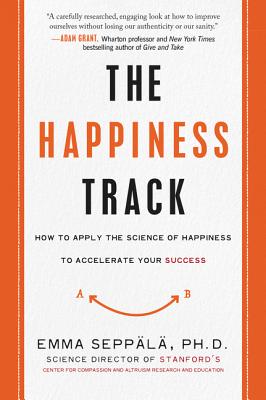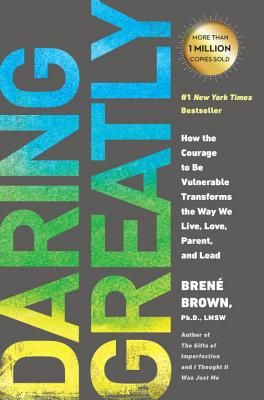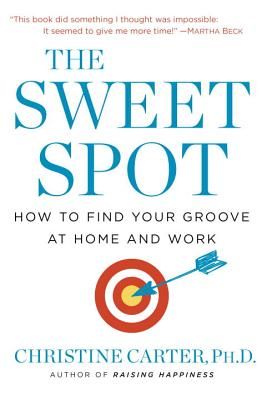Learn about brain health and nootropics to boost brain function
4 Books to Help You Take Charge of Your Happiness


Practicing good habits and building strengths will keep your well-being on the right track.
52 Small Changes for the Mind: Improve Memory. Minimize Stress. Increase Productivity. Boost Happiness. by Brett Blumenthal
By making one small change a week all year long, we can feel much less stressed and more fulfilled, writes author Brett Blumenthal.
Read 20 minutes a day. Choose books and articles you actually want to (rather than should) read. When you read what you love, your interest in reading grows. Reading keeps your brain healthy and protects against memory loss.
Go on a screen diet. How much of your day is spent in front of a screen? Brett reports that some Americans spend up to 10 hours a day online, on mobile devices and in front of the TV. Try to reduce digital time by an hour a day. Attend a lecture in person instead of online or go to a concert instead of watching YouTube videos. Too much screen time can result in stress and sleeping problems, research shows.
Deal with demons. Holding on to regret for past mistakes can hurt your potential and your future. Ask yourself: What past mistakes still upset you? Acknowledge your regrets and ask yourself what lessons you have learned. Start viewing your mistakes as “invaluable blessings,” Brett says.
The Happiness Track: How to Apply the Science of Happiness to Accelerate Your Success by Emma Seppala, Ph.D.
In her book, The Happiness Track, Emma Seppala, Ph.D., writes that working in a stressed-out overdrive mode isn’t the best or only pathway to success. With the latest findings in cognitive psychology and neuroscience, she shows us how happiness has a profound effect on our professional lives by increasing our productivity as well as our emotional and social intelligence.
Tap into your natural resilience. Do something restorative to shore up your resilience like taking a hike in nature or getting a massage. Emma says that the best way to immediately gain resilience in a difficult situation is to focus on your breath, a “rapid and reliable pathway to your nervous system dedicated to helping you regain your optimal state.”
Succeed through compassion. A compassionate culture at work results in improved employee productivity and well-being. Inspire each other at work, look out for one another, emphasize the meaningfulness of the work and treat each other with respect and gratitude.
Manage your energy well. Letting your emotions rule you can be exhausting. Instead, cultivate calm. “When you are calm, you are better able to manage your thoughts and feelings,” writes Emma. Being calm allows you to be more observant, listen better, communicate more skillfully and make better decisions.
Daring Greatly: How the Courage to Be Vulnerable Transforms the Way We Live, Love, Parent and Lead by Brené Brown, Ph.D., LMSW
Vulnerability is our most accurate measure of courage, writes author Brené Brown. When we try to prevent ourselves from feeling vulnerable, we also are shutting out experiences that can bring purpose and meaning to our lives.
Let go of perfectionism. Perfectionism is the belief that if we do things perfectly we can avoid the pain of blame, judgment and shame. Perfectionism is other-focused: What will they think? Instead, she advises to move toward healthy striving, which is self-focused: How can I improve?
Practice being seen. Share a product, article or piece of art you have created. To become more courageous, we have to risk being vulnerable. You can want people to like what you share without attaching your self-worth to how it is received. Without your self-worth on the line, you are more likely to risk sharing your raw talent and gifts.
Connect. True belonging can only happen when we are self-accepting and present our authentic, imperfect selves to the world. Want to live a connected life? Spend less time and energy winning over people who don’t matter, and see the value of cultivating your true relationships.
With vulnerability, you can welcome more love, belonging, joy, empathy, innovation and creativity into your life.
Do you ever feel like you are in a rut of busyness? With her expertise on happiness, productivity and elite performance, author Christine Carter shows you how to step off the merry-go-round of busy and find your sweet spot.
Start a new happy habit. The brain starts to wire itself for greater automaticity the first time we repeat a behavior, so you can make huge strides in forming a new habit in just a day or so. Select a new habit that would make you happy if you did it every day—one that has the greatest built-in reward for you. It could be taking a walk at dusk or starting a gratitude journal.
Show compassion for strangers. It’s easy to do nice things for people you love, but you can become an Olympic-level giver by giving your time, money or love to strangers. Acts of compassion can help you shift from self-preoccupation to true connection and community.
Gain mastery. Mastery is the purest example of finding your sweet spot, where strength and ease intersect. When you master an activity, you have great power with little strain. Gaining mastery often means facing difficulty, persisting and practicing.
Christine writes that we should stop trying so hard to do everything right and gain the freedom that comes from doing the right things instead.
Click here to view full article



